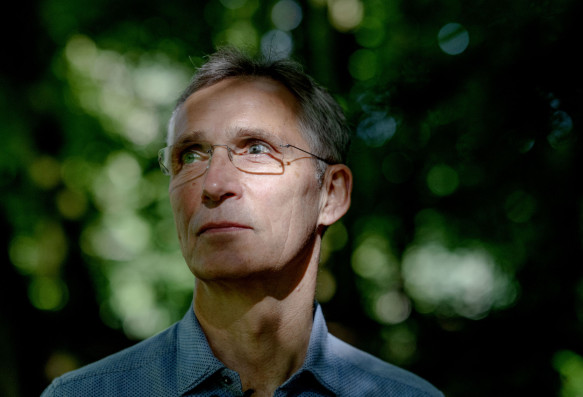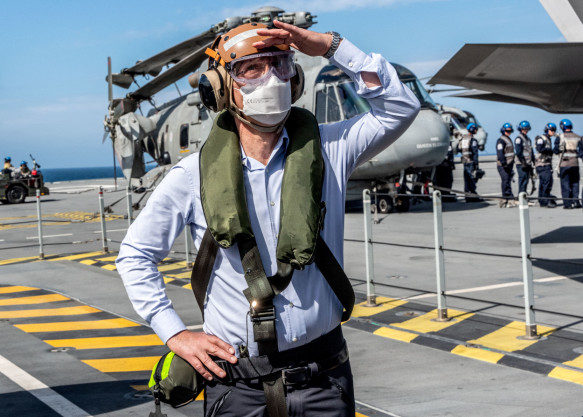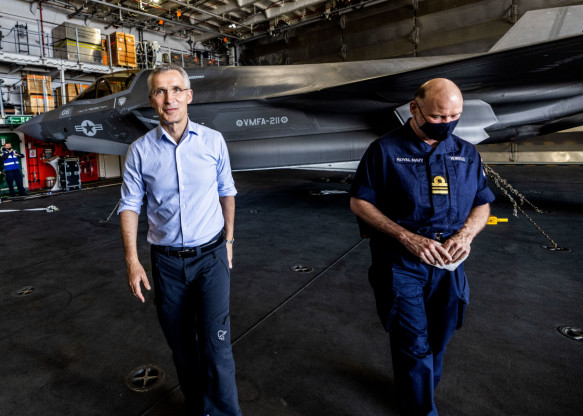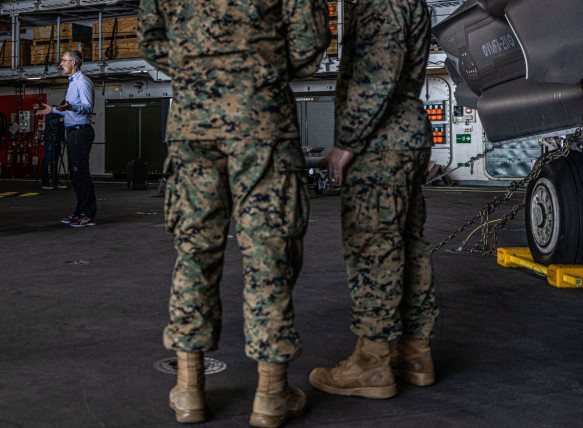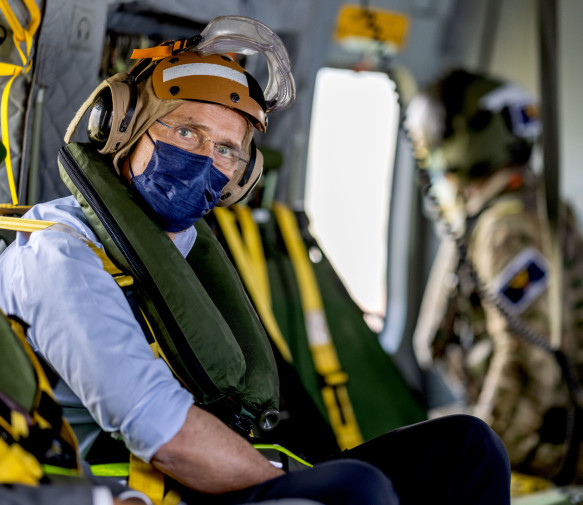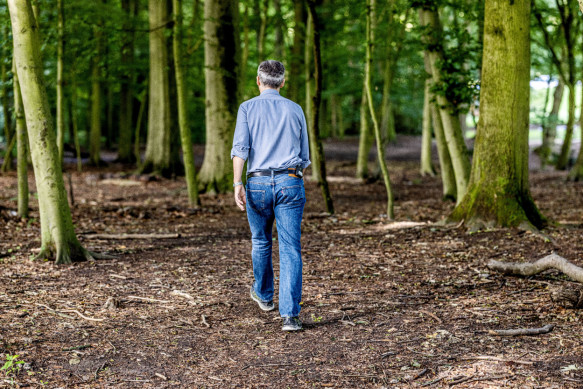– Look at the military equipment today. We have a lot to go for when it comes to reducing greenhouse gas emissions. It is completely inconceivable that the whole rest of the world will switch, for example, to electric vehicles, and then the military world will remain a fossil. We must also help reduce our emissions, for reasons of climate, but also to continue to be on the cutting edge of technology, says Jens Stoltenberg for TV 2.
NATO Secretary General meets TV 2 on the hotel balcony in Cascais, Portugal. He visited the 2021 Steadfast Defender exercise, and was aboard the British aircraft carrier HMS Queen Elizabeth.
Jens Stoltenberg will highlight climate as one of the top topics when heads of state gather for the summit in Brussels on Monday.
Has NATO been too slow to acknowledge the climate challenges the world faces?
Since 2010, NATO has identified and said climate change has consequences for our security, but we have not made it a major and important issue for the Alliance. What we will do at the summit in Brussels is a significant intensification of the work that NATO will do in the fight against climate change. It is about understanding the relationship between climate change and security. It is about adapting our military operations to the most severe weather. It’s about how to contribute to reducing greenhouse gas emissions in NATO and NATO countries, says Stoltenberg.
Commitment: NATO Secretary General Jens Stoltenberg concerned about climate change. Photo: Daniel Sannum Lauten / TV 2
In recent weeks, the NATO chief has had an intense program of preparation for the summit in Brussels on June 14.
I visited Biden
He visited US President Joe Biden in Washington, British Prime Minister Boris Johnson in London and French President Emmanuel Macron in Paris. He also held many phone conversations with presidents and prime ministers, and last week met with German Chancellor Angela Merkel and Spanish Prime Minister Pedro Sanchez in a video conference.
Preparations: NATO Secretary General Jens Stoltenberg visited the aircraft carrier HMS Queen Elizabeth off the coast of Portugal, as part of preparations for the summit.
There are many reasons to be concerned about climate change. Global warming and more extreme weather pose a security threat. It exacerbates crises. This exacerbates the risk of conflict, says Jens Stoltenberg.
He says climate change is exacerbating already existing threats. There will be greater conflict over scarce resources, climate change can lead to famine and floods, they can turn fertile soils into a desert and they can devastate entire communities. All this increases the risk of conflict.
– It threatens our security. Therefore, NATO should be concerned about climate change as well from a security policy perspective, says Stoltenberg, who previously served as Secretary of State in the Ministry of Environment and Special Envoy for Climate at the United Nations.
Asking for jobs: Jens Stoltenberg spent a lot of time persuading NATO member states.
Doubt
He admitted that she was demanding the persuasion of some members of the Defense Alliance.
– Perhaps it was an unfamiliar idea for some NATO countries to make climate change an important issue for NATO. They were also concerned that if we became preoccupied with climate-friendly tanks or climate-friendly fighters, they would be less efficient and less powerful than those using good old fossil fuels.
Stoltenberg answers the skeptics.
– I am absolutely certain that in not many years military vehicles, military aircraft and ships using new forms of fuel will be the most efficient from a purely military point of view.
Efficient: Stoltenberg believes that future aircraft and military vehicles will use alternative fuels.
How will NATO countries be able to reduce emissions?
There are many countries, such as the United Kingdom, that have now started using environmentally friendly forms of fuel for both their vehicles and some of their aircraft. Solar cells are used to provide power for various types of equipment, and some have also started to plant forests.
What does Joe Biden as President of the United States mean for NATO’s climate action?
Joe Biden is very concerned about reducing global greenhouse gas emissions. There are many good reasons for this, but it is clear that climate change is important to our security. There is a greater danger of war. There is a greater risk of conflict in a world marked by global climate change.
high north
The thaw in the Far North also worries NATO leaders, and is closely linked to two other issues high on the NATO agenda. It is Russia and China.
Concern: NATO leaders are concerned about the emergence of China and Russia in the High North. Pictured here on a helicopter en route to the aircraft carrier HMS Queen Elizabeth in the Atlantic.
Nowhere else in the world are we seeing climate change more clearly than in the Arctic and the High North. There is no place where the temperature rises more, and this affects our safety. We are seeing a significant increase in the Russian presence in these areas, with new modern military capabilities such as ships, submarines and missiles.
Stoltenberg and NATO are also seeing an increased Chinese presence in the north.
– We should not overreact. We will continue to seek cooperation in these areas, but we must bear in mind that it is important to our security.
Safety: The temperature rises in the northern regions, and we must bear in mind that it is important for our safety, says Jens Stoltenberg,

“Organizer. Social media geek. General communicator. Bacon scholar. Proud pop culture trailblazer.”



